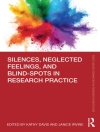Richard Jefferies’ 'Round About a Great Estate’ elegantly captures the intricate relationships between nature, estate life, and the human experience in Victorian England. Jefferies employs a lyrical prose style that seamlessly intertwines vivid descriptions of the English countryside with astute observations of rural society. Set against the backdrop of a grand estate, this work explores themes of class, the interplay between man and nature, and the contemplative reflections of life in the pastoral landscape, showcasing Jefferies’ ability to evoke the sublime beauty of rural life while critiquing its underlying social structures. A prominent figure in the nature writing genre, Richard Jefferies was an English poet and essayist whose fascination with the natural world often stemmed from his own experiences growing up on a farm in Wiltshire. His personal struggles with health and his deep appreciation for the simpler, more profound aspects of life fueled his desire to articulate the interconnectedness of humanity and the environment. This context enriches 'Round About a Great Estate, ’ as Jefferies infuses his reflections with a sense of urgency and authenticity stemming from his own life experiences. This evocative work is recommended for readers interested in the intersection of literature, nature, and social commentary. Jefferies’ keen observations and rich prose invite readers to ponder the beauty and challenges of estate life, making it an essential read for those seeking to understand the complexities of rural existence and its enduring significance in modern discourse.
O autorze
John Richard Jefferies (1848–1887) was an English nature writer, noted for his depiction of English rural life in essays, books of natural history, and novels. His literary craftsmanship, affinity with nature, and extensive observations of the English countryside have made him one of the most influential nature writers of the Victorian age. Richard Jefferies, born near Swindon, Wiltshire, chronicled his profound relationship with the natural landscape as seen in 'Round About a Great Estate’ (1880), where he examines rural life through a series of sketches based on personal experience and keen observation. His work not only sought to capture the bucolic essence of rural England but also often touched upon the broader philosophical and existential themes that the natural environment evoked. Jefferies’ most unique contribution to literature is his intimate portrayal of nature’s minutiae; his elaborate descriptions often verge on the poetic, radiating a visceral understanding of country life. Although his fame peaked posthumously, Jefferies’ work has continued to influence both environmental thought and literary interpretations of nature, inspiring future generations of naturalists and writers. His other notable books include 'The Story of My Heart’ (1883), his spiritual autobiography, and 'After London’ (1885), an early work of science fiction. Jefferies’ prose encapsulates a timeless reverence for the natural world and urges an authentic encounter with the rural landscape.












